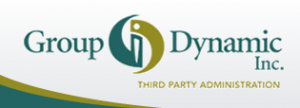The good news is, that while health insurance costs continue to skyrocket, a clean bill of health has kept money in your bank account that otherwise would have been spent of out-of-pocket medical expenses.
Flexible Spending Account (FSA)
An FSA is a Flexible Spending Account, a benefit plan that enables employees to set aside a portion of their paycheck – on a pre-tax basis – to pay for out-of-pocket health, dental and vision expenses, prescriptions, and some over-the-counter medication. Contributions you make to your FSA are deducted from your paycheck before any taxes are calculated and are never reported to the IRS. If you expect to incur medical expenses that are not covered by your current health insurance (i.e. having a deductible plan), you should definitely think about putting an FSA in place.
But before you jump into enrolling in an FSA, there is a potential downside. This has to do with not using all of the money you set aside. When employee’s participate in the FSA, the employee’s entire annual contribution is available at the start of the plan year. For example: If open enrollment period is May 1st and the employee has $500 FSA funds, s/he can spend all of the $500 in FSA funds in May and if s/he is terminated in June, the employee does not have to repay the money. Although, if the employee does not use the $500 by the plan year end, s/he loses it. This is considered a ‘use it or lose it’ benefit.
Some common uses for an FSA: medical and dental expenses, eye glasses, contacts, chiropractor, etc.
Heath Savings Account (HSA)
Paying for today’s medical expenses while saving for tomorrow can be challenging. An HSA is a Health Savings Account is a savings vehicle that allows people a different way to pay for their health care. HSAs enable you to pay for current health expenses and save for future medical expenses on a tax-free basis. You use HSAs in conjunction with traditional health insurance plans as long as the plans are “high-deductible” health plans (HDHP). HDHPs cost less than co-pay plans or traditional deductible plans, so the money saved by switching to the HDHP is then put into the Health Savings Account. This means that everything including PCP visits, Specialists, Inpatient Hospitalizations, MRI’s, CT Scans, etc are all subject to the deductible before benefits are payable.
Unlike a Flexible Spending Account, funds roll over and accumulate year to year if not spent. HSA funds may currently be used to pay for qualified medical expenses at any time without federal tax liability or penalty. However, as of January 1, 2011 OTC (over-the-counter) medications cannot be paid with HSA dollars without a doctor’s prescription.
Health Reimbursement Account (HRA)
An HRA (Health Reimbursement Arangement or often called Health Reimbursement Account) is a fund available to use in conjunction with your health insurance plan. Money in the HRA can only be used to pay for eligible medical expenses incurred by employees and their dependents enrolled in the HRA. An employer may limit what expenses are eligible under an HRA plan (deductible and/or coinsurance).
Your FSA/HSA/HRA plans are offered through the following carriers:


For more information please email [email protected] or call us at 413-586-5011
